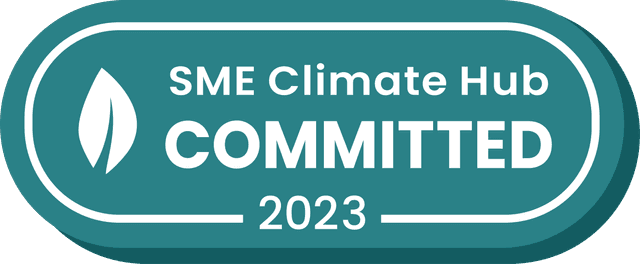Stop The WordPress: WPEngine Trouble or Automattic Overdrive?
)
By Davs Howard
10 min read
)
WordPress Feud: WP Engine vs Automattic and What It Means for You
When tech titans collide, the drama is real! The feud between WordPress founder Matt Mullenweg and hosting giant WP Engine has escalated from passive-aggressive blog posts to legal fireworks, leaving the entire WordPress community watching with bated breath and wondering: who's really in charge of this open-source behemoth?
Here’s our take on the timeline of key events and what this might mean for your business, especially if you're happily running a WordPress site.
Timeline of Key Events
Mid-September 2024: Matt Mullenweg Calls WP Engine a “Cancer”
In a heated blog post, Mullenweg criticised WP Engine for disabling the ability to track revision histories in WordPress posts, a feature he called core to “protecting your data.” He also accused WP Engine of turning it off by default to save money, and took a swing at WP Engine's investor, Silver Lake, for not contributing enough to the open-source project.
Mullenweg didn’t stop there—he claimed WP Engine’s use of the “WP” brand confused customers into believing they were part of the official WordPress organisation, and called for more clarity.
Late September 2024: Cease-and-Desist Showdown
In response, WP Engine fired back with a cease-and-desist letter to Mullenweg and Automattic, demanding they withdraw the “cancer” remarks and retract accusations. They insisted their use of the WordPress trademark was fair and above board. WP Engine also accused Mullenweg of threatening a “scorched earth nuclear approach” unless they paid a percentage of their revenues for licensing.
Then a few days later, Automattic sent their own cease-and-desist letter claiming WP Engine had breached WordPress and WooCommerce trademark usage rules. The WordPress Foundation also changed its Trademark Policy page and specifically named WP Engine, alleging the they had confused users.
September 23-27, 2024: WordPress.org Blocks WP Engine Access
Mullenweg took things a step further by blocking WP Engine from accessing key WordPress resources like plugins and themes, creating chaos for WP Engine customers. This move broke numerous sites, prevented critical updates, and left some vulnerable to security risks. The community reaction? Not great. WP Engine condemned Mullenweg’s actions, calling them an abuse of his position within WordPress.
To defuse the situation (at least temporarily), WordPress.org lifted the ban on September 27, giving WP Engine access until October 1.
September 30, 2024: WP Engine Makes Changes
With the October 1 deadline looming, WP Engine updated its website footer to clarify that they are not officially affiliated with the WordPress Foundation. They also changed their service names, removing references to WordPress, in an effort to quell Automattic’s complaints.
October 1, 2024: WP Engine Rolls Out New Features
In a win for WP Engine, they successfully deployed their own solution for updating plugins and themes, restoring regular workflows for their customers. They announced this on social media, celebrating the end of the immediate chaos caused by the ban.
Early October 2024: The Industry Reacts
Over the first few days of October, developers aplenty have raised their concerns around the control that WordPress has on the industry and, based on recent events, the threat that may pose.
Developers are also worried following The WordPress Foundation, which owns the trademark, filing to trademark “Managed WordPress” and “Hosted WordPress.” Developers and providers are worried that if these trademarks are granted, they could be used against them.
This is even before what happened in the following week...
October 3, 2024: WP Engine Files Lawsuit Against Automattic
WP Engine files a lawsuit against Automattic and WordPress co-founder Matt Mullenweg, alleging abuse of power. They claim that Automattic's control over WordPress was being used to stifle competition, jeopardising the open-source nature of the platform.
October 3, 2024: Employee Exodus from Automattic
On the same day, 159 Automattic employees, many from the WordPress division, opt to leave the company. They cited disagreements with the direction Mullenweg was taking, further fuelling the controversy.
October 9, 2024: The Checkbox
Mullenweg rolled out a new checkbox on the WordPress.org contributor login, requiring users to verify that they are not associated with WP Engine in any way. The internal contributors criticised the move and when they raised concerns were then banned from the community Slack workspace.
WP Engine posted on social media to reaffirm that its customers, agencies, users, and the community as a whole are not affiliates of WP Engine.
October 9, 2024: Wider Industry Response
Prominently outspoken Ruby on Rails creator, David Heinemeier Hansson (known as DHH), wrote an opinion piece criticising Automattic and citing the the potential damage to the open source world moving forward.
"A key part of why open source has been so successful over the last several decades is the clarity and certainty of its licensing regime. Which allow you to build a business on open source without fear of frivolous claims or surprise shakedowns." he wrote.
October 12, 2024: Plugin Coup
In an entirely unprecedented move, Automattic forked (technical term for cloning code from a set point) the hugely popular Advanced Custom Fields (ACF) plugin into a new plugin, Secure Custom Fields (SCF). You'd be unsurprised to find out that ACF is now owned by WP Engine.
Mullenweg claims its to fix a security problem and claims to be invoking a statute of the plugin director guidelines, but the industry at large has condemned Mullenweg for these actions and the grave risk they pose to the entire WordPress ecosystem.
The claim of a security update has been debunked by security consultants and note that "Secure Custom Fields is no more secure than ACF".
The impact of this are huge and, as the ACF team noted, that "a plugin under active development has never been unilaterally and forcibly taken away from its creator without consent in the 21 year history of WordPress."
This update also resulted in breaking issues for some websites that automatically updated the new plugin variant - hardly improving relationships with developers already concerned with the ongoing public feud.
October 12 - 15, 2024: WordPress'
In the days since the plugin takeover, WordPress' social media account has switched from a typically neutral and pleasant tone to an, a best, antagonistic and, at worst, insulting one.
Whether it be responding to the ACF team "best of luck with your version" after the forcible takeover of the plugin, or an unprofessional "Sorry, who are you?" response to a WordPress plugin contributor who was commenting on the Checkbox update, this is hardly the "making the web a better place" mantra that Automattic claim to aspire to.
Meanwhile, in a now taken down blog, Mullenweg retorted to the previous opinion piece from DHH with a personal attack on David and his insulting the achievements of his company, 37signals.
What's Next?
Honestly, who knows, with each passing day I can't believe that the next card is played and that the ongoing damage to WordPress' future is prolonged and deepened.
What Does This Mean for Your Business Using WordPress?
It might sound like a soap opera, but this conflict could have some real effects for businesses relying on WordPress—here’s why you should care.
Hosting Headaches?
If you’re using WP Engine to host your site, you might be thinking, “Are we in trouble here?” Not quite, but keep an eye out. WP Engine seems to be doing fine for now, but any legal fallout could lead to disruptions. As always with technology, it’s good to have a backup plan.
Open-Source Integrity at Risk
The heart of WP Engine’s complaint is whether Automattic is becoming too controlling. The whole point of WordPress was that it’s open-source, meaning anyone can use and build on it freely. But if Automattic starts clamping down on competitors like WP Engine, it raises the question: is WordPress still the free, open playground it was meant to be? If you’re a developer or business building custom solutions on WordPress, this is something to watch closely.
Impact on WordPress Ecosystem
WordPress currently powers around 40% of websites globally, meaning that any instability in its ecosystem could have far-reaching effects. Businesses might face increased costs, reduced flexibility, or potential legal issues if Automattic continues to tighten its grip on third-party providers.
Competition and Vendor Lock-In Concerns
The conflict also raises questions about whether businesses are too reliant on a few key players within the WordPress ecosystem. If Automattic were to monopolise key services, businesses could find themselves locked into using Automattic’s products, reducing competition and innovation. For businesses, this could mean fewer choices and potentially higher costs in the future.
Is This a Threat to the Open-Source Movement?
This drama extends beyond just WordPress and WP Engine—it touches on the broader conversation about the governance of open-source projects. The outcome of this lawsuit could set a precedent for how open-source communities and companies interact, especially when money and market dominance are at stake. If Automattic succeeds in asserting more control over WordPress, it might inspire other companies to similarly restrict the usage of their open-source platforms, which could undermine the entire open-source ethos.
Regardless of the outcome of any legal interactions, the recent furore has definitely torched the open source community - and in particular the WordPress community. One of WordPress' key strengths was the commitment and expansive nature of its community. The plugin ecosystem is what drives WordPress' strength over other platforms, but recent events will undoubtedly push developers away (assuming they've not been blocked already).
Should You Be Worried About the Future of Open-Source?
In short - maybe.
It'll be a while until we see the real fallout of this saga but without doubt it will impact the WordPress ecosystem. It may not have wider reach that than, but I think many more developers will question how, or maybe to who, they contribute to open-source projects.
The good news following this all? The open-source community has proven itself to be vocal, passionate, and quick to respond when the principles of openness are threatened.
For now, businesses should stay informed, explore alternatives if necessary, and be prepared to pivot if the winds of change blow too hard in one direction:
Stay Informed: Businesses using WordPress should keep an eye on legal developments between WP Engine and Automattic.
Explore Alternatives: It might be wise to explore other hosting providers or CMS platforms as a contingency plan.
Evaluate Vendor Lock-In: Assess your reliance on a single provider, whether that’s WP Engine or Automattic, and consider diversifying your technology stack to avoid being caught in similar conflicts in the future.
Ensure Flexibility: Make sure your website is built in a way that allows for migration if necessary, to avoid being tied to a platform embroiled in legal or governance issues.
So, grab some popcorn and stay tuned—it’s not often the world of website hosting gets this dramatic!
&w=64&q=10)
&w=64&q=10)



